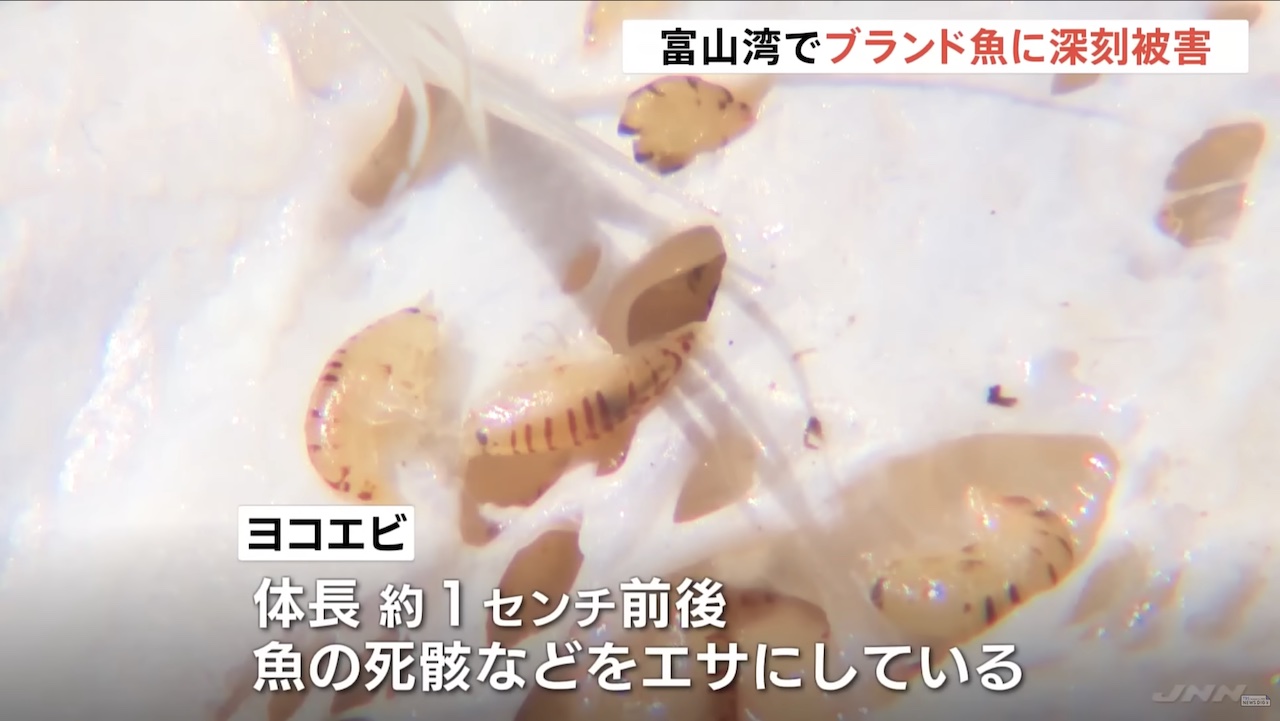Ishikawa, Nov 04 (News On Japan) - In Toyama Bay, known as a 'natural fish preserve,' a small shrimp called the 'yokoebi' has seen an explosive surge since the Noto Peninsula earthquake, causing significant damage to brand fish species.
Set-net fisherman Katsuhisa Tokai commented, "These shrimp have been piling up on the nets recently, sticking to them in large numbers."
The yokoebi, which grow to about one centimeter, feed on fish carcasses and other detritus. Since early this year, these shrimp have proliferated in Toyama Bay, adding to the hardship of local fishermen already impacted by the earthquake.
"The nets are full of these yokoebi," remarked a fisherman. "The fish caught in the nets are being devoured faster than usual."
Since the earthquake, Toyama Bay has experienced ongoing environmental disturbances. From January to May this year, the winter harvest of beni-zuwai crab at the Shinminato fishing cooperative dropped to around 30% of the previous year's levels.
"The crabs are likely buried under debris," lamented a crab fisherman.
The impact isn’t limited to crabs. The catch of shiroebi shrimp, typically at its peak in spring, also plummeted to roughly 20% of its usual levels.
"Compared to typical years, we’re hardly catching anything," a shiroebi fisherman noted.
Experts suggest that a submarine landslide triggered by the earthquake may be affecting fish living near the sea floor in Toyama Bay.
An official from the Toyama Prefectural Fisheries Research Institute explained, "Fish that live in deeper areas may be impacted by underwater landslides or changes in the seafloor environment, potentially affecting their habitats."
One of Toyama’s most celebrated brand fish, the "Manyo karei," which reaches peak season from summer through fall, is also facing a historic drop in catch.
"This season, we should be catching these in large numbers, but it’s about a tenth of the usual," Tokai observed.
"Manyo karei" refers to marbled sole weighing over 400 grams and meeting stringent quality standards, including being kept in monitored tanks to purge mud. In recent years, a single fish has fetched over 100,000 yen.
However, this prized brand fish is scarcely appearing in nets this season, with July’s catch down to a quarter of last year’s. Fishing was suspended in August and only resumed in mid-September, but not a single sole was caught. Instead, the nets were filled with other fish, like the madai, showing visible damage.
Tokai pointed to a madai’s damaged fin, noting, "This fin has been eaten by yokoebi."
The damage from the yokoebi infestation has escalated, prompting fishermen to end this season’s sole fishing prematurely.
"For the first time, we’re not catching anything from the start," Tokai said. "If this trend of poor hauls continues for the next few years, the brand itself may disappear."
With a series of changes in Toyama Bay following the earthquake, fishermen continue to face challenging times.
Source: TBS
















